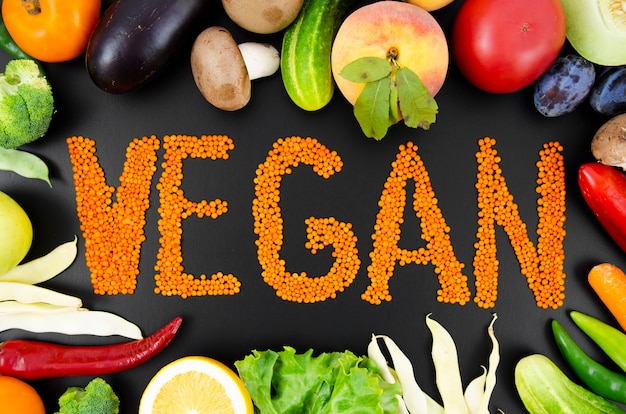
Did you try Veganuary this year and are now considering making plant-based eating a regular part of your life? Whether you’re aiming to go fully vegan or simply want to incorporate more plant-based meals into your diet, Dr. Gemma Newman has some great advice.
With so many diets out there—low fat, high fat, low carb, high carb, vegan, paleo, keto—it’s easy to get confused. Veganuary has been gaining traction, and the number of participants has been increasing every year. In 2018, 170,000 people signed up, showing an 183% increase from 2017, and last year over 250,000 took the plunge.
So, is a vegan diet actually healthy? What sets it apart from other diets that claim to be good for your health? It’s true that nutrition advice can be confusing, often muddled by conflicting messages from the media, food companies, and sometimes even health professionals.
However, it’s hard to argue against the benefits of a diet rich in vegetables and fruits, whole and unprocessed foods, and limiting or avoiding processed meats, sugary snacks, and sugary drinks. People often fall back on the idea of “everything in moderation,” but that’s not always wise. For example, we don’t tell smokers to smoke in moderation; similarly, it’s best to avoid sugary drinks and processed meats as much as possible. The World Health Organization classifies processed meats as a Group 1 carcinogen, meaning they are known to cause cancer.
Dr. David Katz from the American College of Lifestyle Medicine gathered top nutrition scientists for the ‘True Health Initiative,’ and they reached a consensus: a diet rich in vegetables, fruits, beans, nuts, seeds, whole grains, and water is key to good health. Both paleo and whole food plant-based diets share more similarities than differences when compared to the average Western diet.
When it comes to heart health, studies like the Lifestyle Heart Trial and the Mount Abu Heart Trial have shown that a whole food, plant-based diet is the only one proven to reverse coronary artery blockages. Given that heart disease is a major killer, a mostly plant-based diet should be recommended unless future evidence suggests otherwise.
Switching from a Western diet to a plant-based one can be challenging, but many have successfully made the change. If you’re considering it, starting with some accessible cookbooks might be helpful. “So Vegan in 5” by Roxy Pope and Ben Pook offers over 100 simple recipes with just five ingredients. “BOSH!” by Henry Firth & Ian Theasby provides over 80 healthy vegan recipes and has a popular plant-based channel with millions of views.
Exploring plant-based eating can be simplified by tweaking favorite meals. For example, swap chicken curry for chickpea curry, beef Bolognese for lentil Bolognese, and a meat chili for a three-bean chili. Gradually experimenting with new flavors can make the transition enjoyable.
Start by changing your breakfast to a plant-based option a few times a week, then move on to lunch. Gradually increase the number of plant-based meals until you have a variety of favorites in rotation. Some people find that switching to a whole food, plant-based diet leads to noticeable health benefits within weeks, although initial bloating or gas may occur as your gut adjusts.
Both the American Dietetic Association and the British Dietetic Association agree that well-planned plant-based diets support health at all ages and can help prevent diseases like heart disease and cancer. These diets are also linked to reduced risks of chronic respiratory disorders, allergies, and infections in children, paving the way for better long-term health.
The British Dietetic Association’s Blue Dot Campaign emphasizes the importance of dietitians offering plant-based diet advice. We’ve seen nutrient depletion in food due to soil degradation and pesticide use. A Western diet often lacks essential nutrients like magnesium, folate, and fiber, and is more associated with obesity and chronic diseases compared to a whole food, plant-based diet.
A well-planned plant-based diet can be nutrient-dense, focusing on vitamins, minerals, fiber, and antioxidants while avoiding processed foods. Supplements may be necessary, especially for nutrients that are hard to obtain without animal products.
For instance, Vitamin B12 is crucial and typically found in animal products. Adults need about 1.5 micrograms daily, but plant-based eaters should consider taking higher doses, either daily or weekly. B12 can also be sourced from fortified foods like soy milk, nutritional yeast, and cereals.
Vitamin D is also important, especially in areas with limited sunlight. Recommendations range from 1000 IU daily for those with normal levels to 2000 IU for those with lower levels. Omega-3 fatty acids (EPA/DHA) from algae supplements can optimize heart health without the pollutants found in fish.
Flax seeds are another great addition to a plant-based diet; adding one to two tablespoons of milled flax daily can support heart health.
Dr. Gemma Newman, with 15 years in medicine, emphasizes the importance of a balanced and nutrient-dense diet. Even as we strive for healthier eating, it’s vital to consider appropriate supplementation and remain informed about what our diets might lack, ensuring comprehensive nutrition for all age groups.




